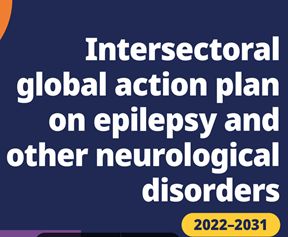Editor’s Choice vol. 113: Exome analysis focusing on epilepsy-related genes in children and adults with sudden unexplained death.
Markus Reuber MD PhD, Academic Neurology Unit, University of Sheffield, Royal Hallamshire Hospital, Glossop Road, Sheffield, S10 2JF
When Darwin described its basic principles, “natural selection” was thought to be the key driver for evolutionary change – an idea characterised by Herbert Spencer in 1864 as the “survival of the fittest”. The basic idea was that individuals or species that are better adapted to their environment have a relative reproductive advantage over their competitors. Since then, we have learned a lot more about gene-environment and gene-gene interactions. We have begun to understand how epigenetic mechanisms can contribute to the heritability of learned patterns of behaviour – and thereby how our ancestors’ experiences can ensure that we are optimally prepared for the environment we have inherited from them (1).
In parallel with the evolution of our genetic adaptation to our environment, there has been an evolution of its comprehension. This evolution has been driven by our low tolerance of being unable to understand the things happening to or around us. As a species and as individuals, we have a great urge to be able explain our experiences. We are much more likely to get distressed by experiences that we cannot explain than by those we have an explanation for (even if this explanation is incorrect).
One context in which this becomes evident in clinical medicine is when a person dies unexpectedly and without explanation. In children this scenario is called Sudden Infant Death (SID), in adults Sudden Unexpected Death (SUD). While many might prefer a sudden and unexpected death for themselves over one following a long period of suffering, death often causes particular trauma to those left behind when it is unexpected and unexplained.
My Editor’s Choice from the current volume of Seizure is a paper by Sarah E. Buerki et al. exploring the possible explanatory genetic contributions to SID and SUD (2). Previous genetic postmortem studies had mainly focussed on genes associated with cardiomyopathies and cardiac arrhythmias. Potentially relevant genetic variants in such genes have been identified in around 20% of individuals whose deaths had been categorised as SID, with similar detection rates in adults who died of SUD (3-5). Genes associated with cardiac pathology have also been examined in people thought to have died of SUD in the context of epilepsy (SUDEP): A recent review of such studies reported likely pathogenic gene discovery rates of around 11% (6).
The genetic postmortem study by Buerki et al. focussed especially on 365 epilepsy-associated variants – on the basis that a proportion of SUD may be attributable to SUDEP rather than primarily cardiac causes. Likely pathogenic variants were found in 19/155 (12.2%) of SIDS and in 6/45 (13.3%) of SUD cases. The potential relevance of this discovery is supported by the observation that genetic variants linked to epilepsy were found more commonly in the subgroup of SUD cases which were likely to have been linked to epilepsy (i.e. SUDEP): 4 of these 9 cases (44.4%) harboured such variants. Of course, the presence of a genetic variant linked to epilepsy does not mean that all of these individuals had experienced epileptic seizures or died of SUDEP. However, this finding supports the idea that SUDEP may explain more cases of SID and SUD than previously assumed – and that greater priority should be given to the prevention of SUDEP through the improvement of epilepsy services.
References
-
Ladd-Acosta C, Fallin MD. The role of epigenetics in genetic and environmental epidemiology. Epigenomics 2016;8:271-83.
-
Buerki SE, Haas C, Neubauer J. Exome analysis focusing on epilepsy-related genes in children and adults with sudden unexplained death. Seizure. 2023; 113:66-75.
-
Neubauer J, Lecca MR, Russo G, Bartsch C, Medeiros-Domingo A, Berger W, Haas C. Post-mortem whole-exome analysis in a large sudden infant death syndrome cohort with a focus on cardiovascular and metabolic genetic diseases. Eur J Hum Genet. 2017;25:404-409.
-
Tester DJ, Wong LCH, Chanana P, Jaye A, Evans JM, FitzPatrick DR, Evans MJ, Fleming P, Jeffrey I, Cohen MC, Tfelt-Hansen J, Simpson MA, Behr ER, Ackerman MJ. Cardiac Genetic Predisposition in Sudden Infant Death Syndrome. J Am Coll Cardiol. 2018;71:1217-1227.
-
Guo L, Torii S, Fernandez R, Braumann RE, Fuller DT, Paek KH et al. Genetic Variants Associated With Unexplained Sudden Cardiac Death in Adult White and African American Individuals. JAMA Cardiol. 2021;6:1013-1022.
-
Chahal CAA, Salloum MN, Alahdab F, Gottwald JA, Tester DJ, Anwer LA, So EL, Murad MH, St Louis EK, Ackerman MJ, Somers VK. Systematic Review of the Genetics of Sudden Unexpected Death in Epilepsy: Potential Overlap With Sudden Cardiac Death and Arrhythmia-Related Genes. J Am Heart Assoc. 2020;9:e012264.





